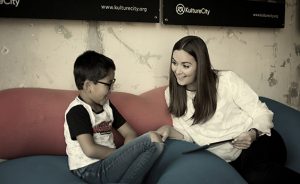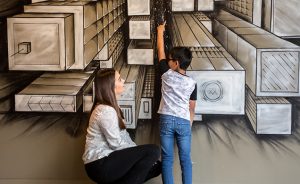
Looking at speech pathologist Lara Dean’s schedule, you might wonder if she has any free time. Dean works full time for the Birmingham City Schools identifying children with autism, speech or language impairment, or other health impairments; she co-owns her own private practice where she conducts individual sessions with students; and she works with KultureCity to develop and roll out their Sensory Initiative Program across the country.
KultureCity’s Sensory Initiative Program trains public venues such as zoos and sports arenas, which can be loud or visually overwhelming, to foster an environment that is inclusive to children with sensory processing needs. Dean joined the KultureCity team in 2014, and helped lead the first installment of the program just one year later at the Birmingham Zoo.
“After the initial training, we collected data to assess if families and individuals felt the sensory changes at the zoo positively impacted their experience and increased their likelihood to return to the location,” Dean said. “Overall, our data indicated that families and individuals with sensory processing needs felt more accepted and comfortable coming to the zoo after the training was completed, and the zoo staff also felt more comfortable and confident when working with this population.”
Now roughly four years later, Dean has driven the KultureCity Sensory Initiative to stadiums, zoos, aquariums, and other venues nationwide including Quicken Loans Arena, home of the Cleveland Cavaliers, and Chesapeake Energy Arena, home of the Oklahoma City Thunder.

“I haven’t been to a single training where someone hasn’t approached me and expressed how glad they are to be doing the training because they have a family member who would greatly benefit from this program,” Dean said. “We have pictures and videos of so many families using these tools out in our community which is truly what the whole movement is about.”
Though Dean has made strides for sensory inclusion across the country, she knows that her work is just the tip of the iceberg. There are hundreds of venues that still need these trainings, and what’s more, the places she’s already visited will bring in new employees who will also need to be trained in sensory inclusion.
To help, KultureCity is already in the process of creating an app that can be used by organizations and facilities to do preliminary and follow-up trainings.
“KultureCity’s mission is for all families to feel accepted and included in their community,” Dean said. “This is just one way to help.”